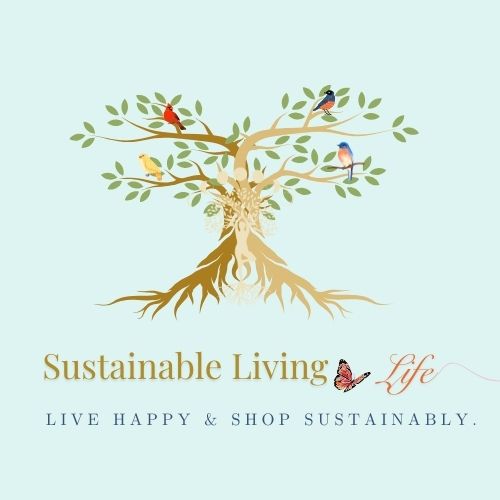
10 steps to Sustainable Living Life
Share
#1 : SWAP OUT CHEMICAL CLEANING PRODUCTS FROM YOUR HOME
NOW: National Cancer Institute found residues of 34 toxic chemicals in household carpet dust, including pesticides, herbicides, fungicides and PCBs. ( https://throne.com/practitioners/resources/articles/we-are-all-toxic)
On average, an American family spend $240/year to bring home 14 plastis bottles of various cleaning products containing harmful chemical to our family like Formaldehyde, Chlorine, Ammonia, Bleach, PERC & Sodium Hydroxide…
WHERE: Eliminate 80% cleaning chemical in your home.
HOW: Replace name-brand chemical cleaners with greener solutions and make sure to review ingredients before you can trust them.
#2: SWAP TO SAFER LAUNDRY DETERGENT
NOW: Prior to World War I, people around the world used pure soap to do their laundry. Early 1930s, scientists discovered that they could make thousands of petrochemicals (synthetic chemicals derived from petroleum) that could be used to replace natural ingredients.(https://branchbasics.com)
Most name-brand detergents are loaded with petrochemicals that are harmful to environment and human health.
WHERE: Eliminate 80% harmful chemicals from laundry detergent.
HOW: Switch to natural detergents and stain removers that are plant-based, biodegradable surfactants.
Check the label on your laundry detergent and choose one that are free from phosphates, anionic surfactant (LAS) , fragrance, optical brightener, sulfate (SLS/SLES), bleach, dioxane and phenols..
Fragrances are considered to be among the top five allergens. Fragrances normally contain phthalates which has been found to disrupt the endocrine system, particularly dangerous to developing and young babies.
So called “natural fragrances” can be just as toxic as synthetic fragrances.
#3: CONSUME LESS PAPER WITH HOME REORGANIZATION AND COLOR CODING
NOW: From 2001 to 2019, a total of 386 million hectares of forest were lost globally (in all forest types combined). 42% of all global wood harvest is used to make paper. Pulp and paper is the 3rd largest industrial polluter of air, water and soil. Chlorine-based bleaches are used during production which results in toxic materials being released into our water, air and soil. When paper rots, it emits methane gas which is 25 times more toxic than CO2. (https://www.theworldcounts.com/stories/paper-waste-facts)
WHERE: Consume 80% less paper in your home.
HOW: Swap from paper towel to reusable microfiber towel.
Human destroy one of the most valuable item on earth – trees to make one of the cheapest item on earth – paper and waste.
to make one of the cheapest item on earth – paper and waste.
#4: SWAP FROM SINGLE TO MULTIPLE USE
NOW: From a research done by United Nations Environment Program (UNEP), 89 percent of plastic in the ocean is single-use plastic items, such as plastic utensils and plastic bags
Styrofoam is non-biodegradable and is make from chemicals that can be harmful to human health.
Plastic produce bag photo-degrade in sun, breaking into smaller plastic particles that contaminate human food chain and later can be toxic to humans.
WHERE: Reduce 80% plastic waste in the ocean
HOW: Swap from single use to multiple use products and solutions.
Reevaluate the real enviro-cost of non-recyclable plastic or paper products to our planet and reorganize your habits to consume them only when you need it the most.
Plastic straws are one of the most commonly found pollutants in our oceans.
#5 : CHOOSE TO PLAN AHEAD
Prepare a go-pack for yourself and your family with items like reusable straw, reusable or decomposable utensils. I also have with me travel size microfiber for hand towel use to replace hand paper towel need.
Once you choose to plan ahead, you will find 80% of paper and plastic pollution problem can be eliminated easily.
#6: CHOOSE LONGER LIFE SPAN AND PRODUCTS THAT BRING YOU “JOY”
Before spending money on something you want, ask yourself how long the item would last or how long you will enjoy it. Every products, we bring home have a cost to the environments, and sometime the enviro-cost is far more expensive than the cost we pay for it.
“People ‘over-produce’ pollution because they are not paying for the costs of dealing with it.” ― Ha-Joon Chang, 23 Things They Don’t Tell You about Capitalism
#7: CHOOSE DECOMPOSABLE
Human life is more on the go. We are all constantly chasing our next dream , hunting our next opportunity. Most of us, especially mom, find it is hard sometime to be prepared and plan ahead. However, when we have to pick a quick meal or use single use products on a go, choose decomposable option.
“Earth provides enough to satisfy every man’s needs, but not every man’s greed.” ― Mahatma Gandhi
#8: CHOOSE TO REDUSE
All items, once they are used, they are gone. Spend money on what you need, not just what you want. Remember every product you buy has a cost not only to yourselves, but also to the environment.
“To waste, to destroy our natural resources, to skin and exhaust the land instead of using it so as to increase its usefulness, will result in undermining in the days of our children the very prosperity which we ought by right to hand down to them amplified and developed.”
― Theodore Roosevelt
#9 : CHOOSE TO REUSE
Swap from plastic water bottle to reusable water bottle.
Swap from ziplock bags to silicone reusable bags.
Swap from plastic produce bags to bring your own reusable shopping bags. The list go on when we choose to REUSE!
“What is the use of a house if you haven’t got a tolerable planet to put it on?”
― Henry David Thoreau, Familiar Letters
#10: CHOOSE RECYCLE AS THE LAST RESOURCE
For a majority of us, complete sustainable living lifestyle is every hard to achieve. However, remember every small effort count when you care. Start to make a swap when you can and remember to use recycling as our last resource.
